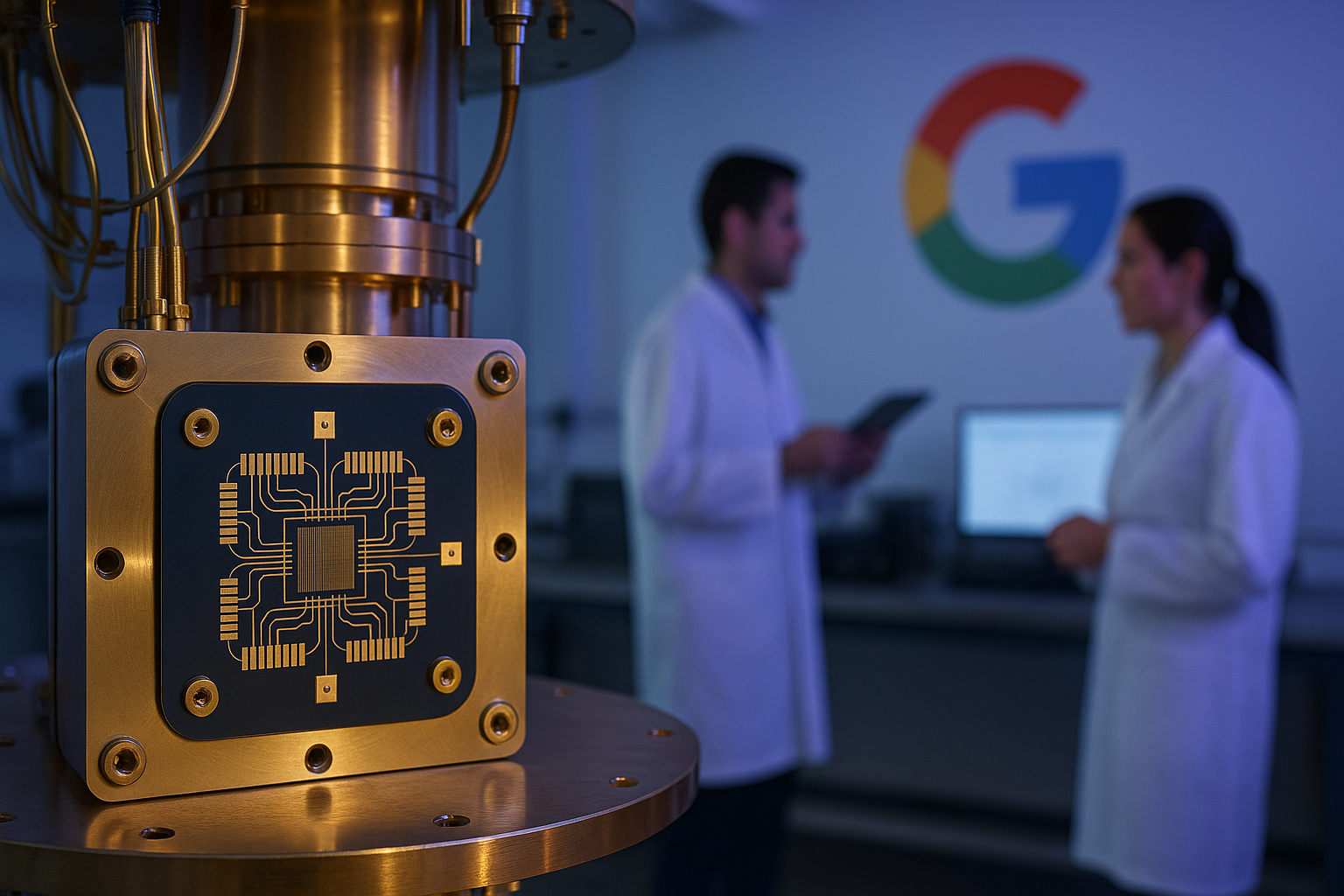Google just added another Nobel laureate to its employee directory. And honestly, what says "we're serious about innovation" more than having the world's most prestigious scientific award winners on staff?
Michel Devoret, Google's Chief Scientist of Quantum Hardware, nabbed the 2025 Nobel Prize in Physics alongside former Googler John Martinis and UC Berkeley's John Clarke. Their groundbreaking work on superconducting qubits—the building blocks of quantum computers—earned them science's highest honor.
This marks Google's fifth Nobel winner overall and, remarkably, their third in just two years. It's the kind of statistic that'll inevitably show up in recruitment brochures, right between the cold brew coffee stations and those unlimited vacation days nobody actually takes.
But there's something profoundly interesting happening here beyond corporate bragging rights.
I've been tracking the quantum computing space for years, and what we're witnessing is nothing less than the industrialization of fundamental science. Remember when quantum physics was just that weird, abstract stuff that made Einstein uncomfortable? ("Spooky action at a distance," he called it.) Now it's becoming corporate strategy.
Look, this isn't just about collecting scientific celebrities. There's a full-blown quantum arms race underway. Google, IBM, Microsoft, Amazon—they're all burning through billions trying to reach the promised land of "quantum advantage," where these exotic machines finally do something economically valuable better than regular computers.
Google made waves back in 2019 claiming "quantum supremacy" when its 53-qubit Sycamore processor performed a specialized calculation that would supposedly take traditional supercomputers thousands of years. IBM promptly disputed this (tech companies, am I right?), but the milestone was significant regardless.
The talent market in this field is... well, bonkers. It reminds me of how baseball teams treat pitchers who can throw 100+ mph fastballs—these rare individuals command extraordinary compensation packages, and organizations build entire strategies around them. When you've got people who can actually advance fundamental physics, you do whatever it takes to keep them happy.
What makes quantum computing particularly fascinating is how it breaks the traditional tech development model. Most technologies follow a somewhat predictable path from research to commercialization. Not quantum. It requires simultaneous breakthroughs across multiple disciplines—materials science, error correction, algorithm development, even new programming paradigms.
And nobody really knows when the big payoff is coming.
We understand, theoretically, that quantum computers will eventually solve certain problems exponentially faster than classical machines. Simulations of molecular structures for new drugs? Optimization problems for logistics? Breaking current encryption standards? All on the table. But the timeline? That's where things get fuzzy.
This creates a peculiar situation for investors. Pure-play quantum computing stocks are essentially lottery tickets on future technological breakthroughs. The tech giants offer safer exposure, but their quantum divisions represent tiny fractions of their overall business.
(Having sat through countless investor presentations on quantum computing, I can tell you the most common question is always some version of "But when will this actually make money?")
Perhaps the smartest investment play is in quantum-adjacent technologies—specialized components, materials, and cooling systems that will see demand regardless of which approach ultimately wins. It's the digital equivalent of selling pickaxes during a gold rush.
Are we witnessing the birth of a new technological paradigm, something as fundamental as electricity or classical computing? I think we might be. The fact that Nobel-caliber physics research is happening inside corporate labs rather than just universities tells you everything about both the potential economic value and the extraordinary resources needed.
For Google, having multiple Nobel laureates creates a virtuous recruiting cycle. Top talent attracts more top talent. And in fields at the absolute frontier of human knowledge, the capability distribution isn't linear—the very best researchers can be orders of magnitude more productive than merely excellent ones.
Will quantum computing deliver on its extraordinary promise? The honest answer—and one that both scientists and executives will admit after a drink or two—is that we don't fully know. But when companies like Google start collecting Nobel Prize winners like trading cards, it suggests they believe commercial applications might be closer than many of us realize.
And in the meantime... well, there's always that free kombucha on tap.
